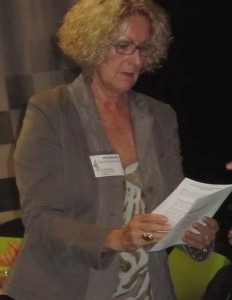 By Joey Edwardh
By Joey Edwardh
April 9th, 2019
BURLINGTON, ON
On March 13, quietly, almost silently, local democracy in Ontario receded further into history. The Ontario government’s Special Advisers on Regional Government in Ontario announced an open consultation on their deliberations to review governance, decision-making and service delivery in eight two-tiered regional governments along with Simcoe County. They will report to the Minister of Municipal Affairs and Housing by the summer.
The “open consultation” amounts to six weeks via an online survey and submission of briefs within that period as well. This is strikingly limited in scope and time frame for a governance review impacting 5.4 million Ontarians living in 82 municipal jurisdictions across the province.
It has been 50 years since the regional government system in Ontario was put in place. It is worth noting that it was done with careful and deliberate action over a 10-year period from 1965 to 1975. The Regional Government of Hamilton-Wentworth was one of the last created in 1974. Sure, at that time there was much political and community resistance to the merging of many towns and cities into larger municipalities within a regional structure. But, the process allowed for the time, energy and accessibility for all voices to be expressed, even if not everyone was satisfied with the outcome.
When all the smaller municipalities in Hamilton-Wentworth were amalgamated into the City of Hamilton in 2001, there was resistance from the smaller suburban communities to the loss of their local governments.
Even the provincially imposed and highly controversial amalgamations in Hamilton and Toronto were announced by the Harris Government more than a year before being implemented, a time frame that allowed local councils in Metro Toronto to conduct the polling of their own residents via plebiscites (76 per cent opposed) and community mobilization through Citizens for Local Democracy.
We have seen, however, today’s provincial government acting unilaterally and undemocratically with its interference in the 2018 municipal election in Toronto by cutting the ward system by half in midcampaign. Other policy initiatives in health and education are also getting short shrift when it comes to public input.
Clearly, this regional government review is only giving lip service to public consultation. All reports indicate that the special advisers themselves, Michael Fenn and Ken Seiling, are highly respected, knowledgeable and experienced in regional government. And, they have been holding private meetings for several months for input from selected municipal officials and “stakeholders,” read the business community. The offer of a mere six weeks for input from the general public via an online survey that assumes familiarity with what each of the existing two tiers of regional government actually do will be an exercise in futility.
If this were a serious government initiative with an honest wish for public input and ideas on how to structure effective and efficient local democracy, it would give the special advisers terms of reference that would allow them to hold open public consultations in all the affected communities over a reasonable period of time, at least through this calendar year, before issuing a report. Instead, it is clear that the Minister of Municipal Affairs and Housing is just looking to check the “public consultation” box on his path to imposing predetermined plans for creating larger single-tier municipalities, regardless of the implications for local voice in decision-making.
Finally, another opportunity is missed in this review. Restructuring for better governance and decision-making should be more than just about the number of elected officials and how they are organized into smaller or larger municipal bodies. Local democracy should also be about how community members can actively participate in the democratic process beyond just elections in ways that are recognized and seriously considered by elected representatives in their decision-making. The narrow scope of the current review precludes that discussion and denies a chance for civic engagement and affirmation of core democratic values and principles.
There is little hope that the special advisers will produce any recommendations that will deter the government from doing what it intends to do anyway. It will be up to citizens and community groups to organize and build political support for the kind of local democracy they want.
 Joey Edwardh is the Executive Director of Community Development Halton.
Joey Edwardh is the Executive Director of Community Development Halton.















Survey found here
https://www.ontrario.ca/form/survey-regional-government-review
https://www.ontario.ca/form/survey-regional-government-review
Thank you Jeremy. Genuine public engagement is always to be valued and commended. However, I believe that Ms. Edwardh’s basic premise is that this engagement exercise is fundamentally flawed and futile – cynical at best.
Hear hear! Very well said. “We Love Burlington – STOP Amalgamation” is a grass-roots community group, working in concert with “We Love Oakville – STOP Amalgamation”, to inform the public on this issue and we too are very concerned with the process and lack of meaningful public engagement. We are meeting with our MPP Jane McKenna next week at Queen’s Park and we have registered to delegate to the two special advisors in May. We will keep the public informed of our progress.
An exceptionally astute analysis of the type of public consultation that seems to be the norm today. I’m afraid this government knows precisely what the outcomes will be from the review and will ensure that they are tabled quickly and without much deliberation. Look for enabling legislation to be introduced before the legislature rises for the summer (with the necessary standing committees still sitting). The public needs to let its members of provincial parliament know how it feels about recommendations for “smaller government” (aka amalgamation) and a potentially lost identity for the City of Burlington. The Fraser Report is a necessary and illuminating read. Please get informed people!